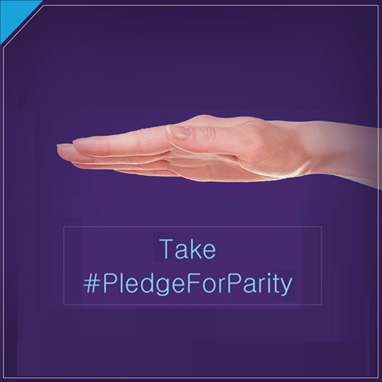
Changing the emotional response towards women with mental illness is what mental health activist Ratnaboli Ray, and her organisation, Anjali are trying to do. Here in conversation with PatientsEngage:
A WHO report mentions that gender differences occur particularly in the rates of common mental disorders like depression and anxiety. These disorders, in which women predominate, constitute a serious public health problem. How do you address the concept of gender parity as far as your work is concerned which, incidentally, is also this year’s International Women’s Day theme?
I think when we talk about gender we just cannot interpret it the way WHO has interpreted. It is not just about which illness affects women, it is also about how women are treated by the mental health institutions. A woman’s trajectory needs to be examined as also the violence and the harassment that she has gone through, which have all, in turn, affected her mental health. The other thing is that mental health officials fail to address the issue with empathy as they have been trained to treat a woman as an object and not as a subject, not taking into account the different roles that a woman plays out in her life. The whole mental health system is quite patriarchal, around which the classifications have taken place. In India, society takes a different look at men and women as far as mental health is concerned
Do you think Anjali as an organisation works and aims differently from others working in the mental health area?
If we have to talk about our work and how it is different from other organisations working in the sector, I think Anjali has very successfully integrated the feminist angle as well as the human rights angle within its work. Where it is different also is the way we have conceptualised our intervention which is essentially based on building citizenship and personhood. A woman who is poor and lives in a village and has a mental illness obviously is very vulnerable and very low in the gender pyramid. And therefore, our work is important where a woman even with her history of psychological distress can access justice, livelihood opportunities and even relationships. With mental illness, your livelihood is jeopardised and you lose people around you as well. Therefore, it is only as a citizen that you can claim your entitlement and that’s where I think we are unique. Many other organisations in the sector do work with women and their focus either is livelihood or mainstreaming women back into the community. What we are trying to do is not only to get them back into the community, but also collectivise them and also kind of make them aware that they are legitimate citizens and they have the power to take decisions and participate in everything.
Systemic changes are always difficult to bring about, especially if it is with the government of our country in question. How difficult has it been to get the government to cooperate in most matters?
Systemic change is difficult, and extremely tedious. But that doesn’t mean that we don’t attempt to change the system. By systemic changes I don’t just mean bureaucracy or red tapism. I also mean largely the biasness within the system, the skewdness of policy, the way the mental hospital looks like where there is less circulation space for women. Yes it has been very difficult. We have faced much resistance. But in some way over the 14 years we have been able to create our credibility that we walk our talk and we mean what we say and we have demonstrated that. We have earned our respect from the government and because of that respect, however much resistance is there, we have a space for dialogue. And the government by now clearly knows we are not going to be co-opted. So therefore our position vis-a-vis the government is that we are partly a negotiator and also that we will oppose. So by way of small changes, we have managed to do away with seclusion cells in mental hospitals where women used to be put away as punishment. In the patient welfare committee we have ensured that there is a representation of the patients. So they now have a say how their welfare is going to be mapped by the government. The food that they eat, we have made sure that there is a patient in the committee, so that a patient also has her say and knows exactly what they want and they are communicating it. Systemic change is difficult, you have to be at it all the time, and you have to reconcile with the fact that you will never be on the good books of the government. The government views us as a competing yet concerned association. And that is okay as long as we are getting our work done and small changes are happening. Recently the government has invested more than half a crore to set up a livelihood unit with us where women are getting trained to run an automatic laundry unit and that’s a very big achievement.
Is women’s health more of a concern for the organisation?
I think women’s health is of utmost concern to Anjali. Many of these women suffer from anaemia, diabetes, lack of sexual health etc., which stresses them up and it has a bearing on their mental health. Many of them have eye problems. So it is all of deep concern to us. Many women in mental health hospitals have become blind or have chronic liver problems. And this is because of medication and also because there are no check ups. And the food they get does not have enough nutrition and calories. And there are a lot of unexplained physical illnesses which are connected to mental health, like ambiguous pains, aches, headaches which have a root in their psyche. We constantly write and do media advocacy, making sure that the health headquarters take a policy call on doctors conducting a regular health check up of the patients.
How do you think the community can create more awareness about mental health issues and also reduce the stigma attached to it?
I think all the organisations in the sector are trying to get people from the community to be aware of mental health problems and psychological distress. One way of doing that is you keep on sending out information of different kinds. It is not just enough to say that mental health is curable. It is more important to say that a person with mental illness has recovered and can participate and contribute. On one level there is cognitive awareness or knowledge. But how do you translate or process that knowledge into your own attitudinal framework which influences your behaviour. That is the trickiest part. There is no dearth of information in the public domain. What I really want to do as an activist is how I can change the emotional response towards the woman with mental illness. I think that is where we are investing most of our energy. Because it is your emotion which compels you to behave in a certain way towards the person either with mental illness or with HIV or cancer. What we are trying to do is change the existing emotional responses by bringing out stories, by showcasing how women with a history of mental illness are contributing in the labour market and how genuinely they can contain a family.
It is important to constantly highlight these stories, and that is where we address the stigma. The primary object is to collect first person narratives and bombard the public domain. Anjali is the only organisation which is looking at the intersectionality, looking into gender and mental health, human rights and mental health, and even sexuality and mental health. These intersectionalities make mental health a very live subject and not stay cocooned within the hands of certain experts. And when you manage to show the intersectionalities, it gets a lot easier to raise awareness, and to say that don’t get too worried about the stigma.

Ratnaboli Ray is a psychologist and an Ashoka fellow. She has been tirelessly working towards changing the general psyche towards mental illness as also bringing in changes in government-run mental institutions in India.






